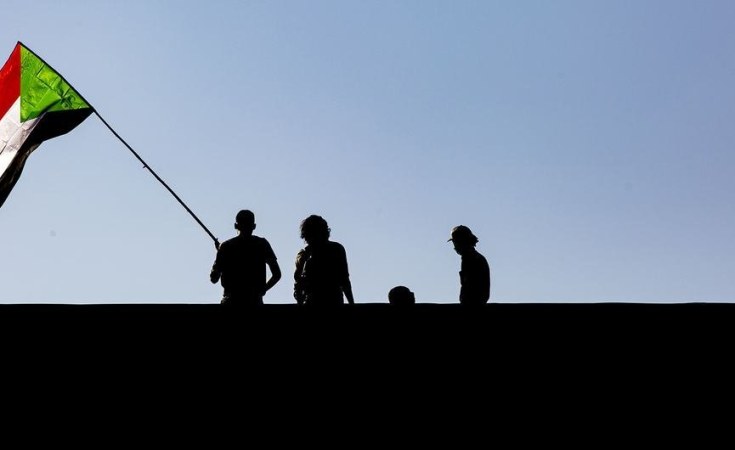Khartoum — Protests and roadblocks continued for the second day in Khartoum yesterday after a young pro-democracy protester was killed on Tuesday. At least 71 were injured in the protests. The police have confirmed that the arrested police officer's immunity has been lifted at the request of the Public Prosecution.
The Central Committee of Sudanese Doctors said in a field report yesterday that the security forces returned to the use of live ammunition and the shooting of stones with tear gas launchers in the face of peaceful demonstrators on Tuesday, which led to the injury of at least 71 people, including serious injuries.
Protester killing
The death of 16-year-old protester Ibrahim Majzoub, who was allegedly shot in the chest by a police officer during the February 28 pro-democracy processions in Khartoum North, sparked widespread condemnation from both the national and international community.
The police have confirmed that the arrested police officer's immunity has been lifted at the request of the Public Prosecution. Activist groups in Sudan have called for the accused to be tried for premeditated murder.
The police also confirmed the start of questioning of the arrested police officer with the formation of a board of inquiry.
Lawyer Ishraga Osman told Radio Dabanga the police have indeed filed a report on the charge of premeditated murder, lifted the officer's immunity, and began questioning.
Osman said that international pressure contributed to accelerating the procedures against the officer accused of shooting the protester.
Political process urgency
El Reyeh El Sadig, the official spokesperson for the Sudanese Professionals Association (SPA) and a member of the Executive Bureau of the mainstream Forces for Freedom and Change-Central Council (FFC-CC), called on the signatory parties to the Framework Agreement to expedite the formation of a civil government "in order to stop the systematic killing of peaceful revolutionaries".
He told Radio Dabanga that the delays in the political process will lead to an escalation of violence against demonstrators and said that he demands "the reform of the security and police institutions, by which the people's faith in them may be restored".
"These institutions are corrupted to the bone, due to the dictatorship that ruled the country for 30 years," he said and called for "the formation of a credible civilian government in order to enact legislation that will stop the systematic violence against peaceful processions".
Hamouda, spokesperson for the Forces for Freedom and Change abroad and leading member of the Unionist Gathering, stressed that the violence and systematic killing of revolutionaries by the police and security services are threatening the political process.
He told Radio Dabanga that "the upcoming transitional period requires the development of common ground between all parties to reach a full civilian authority that will lift the immunity enjoyed by members of the security forces and task them with the protection of the people".
The Unionist Gathering leader stressed that the police agencies need training, rehabilitation, and deep interventions, indicating that they are now trained to suppress the people and protect the former regime instead of protecting citizens.
Hamouda called on the next government to review these agencies and their professionalism and principles.


